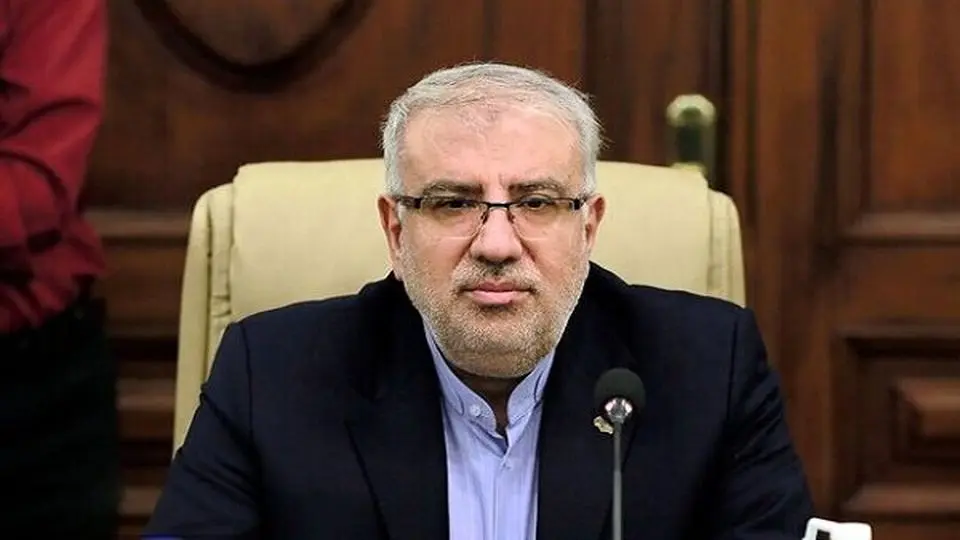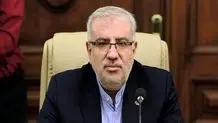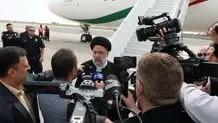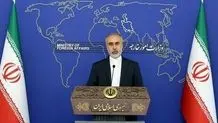Oil min.:
Sanctions against Iran jeopardized world’s energy security
The unilateral and cruel sanctions imposed against Iran, which holds the first place in total oil and gas reserves and world's most important energy producer, have endangered the energy security of the entire world.

MEHR: The unilateral and cruel sanctions imposed against Iran, which holds the first place in total oil and gas reserves and world's most important energy producer, have endangered the energy security of the entire world.
Iranian Oil minister and his accompanying delegation left Tehran for Tokyo on Sunday to take part in the Asia Green Growth Partnership Ministerial Meeting (AGGPM).
The following is the full text of Mr. Owji’s address at AGGPM on Monday, September 26, 2022.
“In the name of God, the Merciful and the Compassionate
The focus of the speech: The need for an evolutional and fair energy transition, as well as focusing on the development of natural gas.
Excellencies, honorable ministers, ladies and gentlemen
First of all, as the Minister of Petroleum of the Islamic Republic of Iran, I would like to convey my warm greetings on behalf of the nation and the government of Iran to the honorable secretary of the meeting, His Excellency Mr. Nishimura, the honorable ministers and all the honorable officials. I would like to express my pleasure to attend this important international seminar.
In the recent years, serious approach toward the reduction of using fossil fuels with the aim of diminishing carbon emissions, has led to a decrease in investment in fossil resources.
Meanwhile, as the subsidence of the novel Corona pandemic, the increasing global energy prices and demand, as well as rising geopolitical crises, the world's energy security has faced jeopardy in the current situation.
Contrary to the expected trend in the process of energy transition and the reduction of the share of fossil fuels, the forecasts show that renewable energies will not be able to meet the growing need for global energy not only in the current condition but also in the coming decades. The fossil fuels’ consumption, especially natural gas, will experience a growing trend in the next decade.
Therefore, the question is, what should be done to ensure stable energy security with minimum pollution and acceptable cost in this transition period?
Your excellencies,
Many countries, including energy suppliers, understanding the global needs related to reducing carbon emissions, have taken policies to diversify their energy portfolio and reduce carbon emissions in production processes, during the past few years, But the success of these programs depends on active global participation, especially in the field of investment and technology.
The prerequisite for this action is the acceptance of a fair and evolutional energy transition instead of aggressive policies to eliminate fossil fuels from the global energy portfolio.
A fair and gradual energy transition requires avoiding forced regimes and, more importantly, active and non-discriminatory participation in the financing of carbon emission reduction projects, especially in the field of fossil production (elimination of flaring, CCS/CCUS) with a better understanding of technology gaps, economic problems, dealing with cruel and illegal sanctions, etc., which have involved some countries in continuous crisis.
With this introduction, I think that an important part of the solution to the global challenge of global energy security depends on attention and focus on natural gas as a clean fuel for at least the next few decades.
It will be able to provide a significant share of the primary energy needed by the world. According to a large number of experts, natural gas can serve as a bridge between the era of dominance of fossil fuels and the age of superiority of renewable energies.
At this critical era, Iran, relying on its huge natural gas reserves, can play a significant role in ensuring the world's energy security. With more than 33 trillion cubic meters of natural gas reserves, the Islamic Republic of Iran is the second largest natural gas resource in the world and has recorded producing one billion cubic meters per day. From this point of view Iran achieves the third place in the world.
At the same time, Iran's natural gas production prospects have a great capacity to increase because of vast unexplored areas and many undeveloped fields. These advantages, along with Iran's strategic position in accessing various markets and neighbors with rich oil and gas resources, confirms the effective role of the Islamic Republic of Iran in the future of the global energy security.
Islamic republic of Iran stands in the first place for its total oil and gas reserves. It is also the most important producer of oil and gas in the world. But the unilateral and cruel sanctions imposed against the Islamic Republic of Iran have endangered the energy security of the region and the world. Although because of the embargo, Iran has faced a challenge to actualize the high production and export capacity of oil and gas and to play an effective role in the regional and global energy supply chain and despite all the restrictions, Iran has achieved significant successes in oil, gas, refinery and petrochemical industries.
Ladies, gentlemen
Achieving low-carbon economic development in the world and the attainment of the goals of this summit requires the cooperation of all countries, including developed and developing countries, all fossil energy producers and consumers.
It is for sure that the energy transition issue and reduction of dependence on fossil fuels has been pursued with more seriousness in recent years, But it seems that there is a significant gap in the full realization of the goals in all countries.
Therefore paying attention to the economic development level of countries in determining their duties and obligations is inevitable.
My proposal for development of multilateral cooperation between consumers and major producers of fossil energy with the aim of reducing carbon emissions in the context of an evolutional and fair transition" is as follows:
· Paying attention and focusing on natural gas as a clean and low-cost fuel
· Free access to financial resources and technology without discrimination and sanctions due to the global effects caused by restrictions on the implementation of projects related to securing the world's energy and reducing carbon emissions;
· Revising the energy investment portfolio, especially by giving priority to increasing gas production, eliminating flaring and improving energy efficiency;
· Cooperation in the development and promotion of technologies necessary to increase energy efficiency, intelligent networks and energy storage and collection of flared gases;
· Cooperation and interaction in the direction of commercialization of the hydrogen economy;
· Creating ITP, (Innovative Technologies Parks) in order to share the knowledge between projects, discuss and exchange information, Cooperation in clean fuel development plans, standards and implementation of relevant market development models, Holding continuous and purposeful events to identify problems and recognizing solutions, policies and compilation plans.
At the end, while welcoming the presence of the international companies to participate in the projects of increasing energy efficiency, reducing carbon emissions, the development of clean and renewable energies and energy storage in Iran, I would like to point out that without international cooperation in the gradual reduction of carbon emissions, if the current aggressive approach of not paying attention to the interests of fossil fuel producers continues, the world will undoubtedly face a crisis of energy security in the next decade.”
آخرین اخبار Iran را از طریق این لینک پیگیری کنید.




